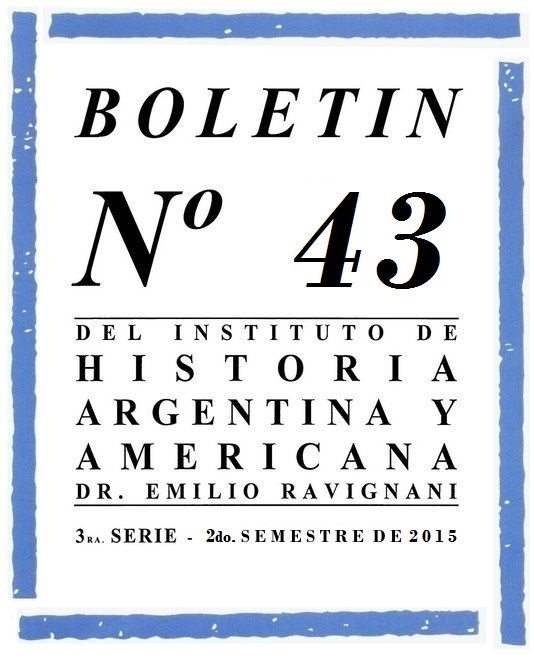La Compañía del Trajín de Azogues de Potosí. Un capítulo inédito de la financiación de los repartimientos indígenas surandinos al desarrollo de la minería colonial
Resumen
La explotación minera de Potosí se constituyó en la máxima preocupación del Virrey don Francisco de Toledo, quien la consideró la fuente de ingresos de la hacienda de su majestad. Para ello, diseñó sus reformas, que consolidaban el gobierno y disciplinamiento indigena y organizaban los repartimientos para proveer al centro minero de un flujo constante de mano de obra. Más allá de ello, el abastecimiento de mercurio constituyó otro de los esfuerzos organizativos del virrey, quien conocía la dependencia de la nueva metodología de amalgamación del flujo sostenido del azogue.De una presentación judicial de los indios de Moromoro (corregimiento de Chayanta, Charcas) se patentiza la forma que eligió Toledo para fundar la Compañía del Trajín de Azogues cuyo objetivo era garantizar el flujo continuo de mercurio a Potosí. Esta investigación devela la centralidad de los repartimientos indígenas y su rol en el proceso de dominación, esta vez como prestamistas del capital necesario a la fundación de la Compañía del Trajín.Descargas
Los derechos de autor son cedidos al Boletín, pero los autores podrán recuperarlos y reproducir su trabajo en otros medios o formatos mediante una solicitud por escrito al Comité Editor. En esos casos, se citará al Boletín como primera publicación del trabajo.
Las obras quedan licenciadas bajo una Licencia Creative Commons Atribución-No Comercial 4.0 Internacional, que permite a otros compartir el trabajo con un reconocimiento de su autoría y la publicación inicial en esta revista.
También, mediando solicitud por escrito al Comité Editor del Boletín, los autores pueden establecer por separado acuerdos adicionales para la distribución no exclusiva de la versión de la obra publicada en esta revista (por ejemplo, situarlo en un repositorio institucional o publicarlo en un libro), con un reconocimiento de su publicación inicial aquí. No se permiten usos comerciales.



















